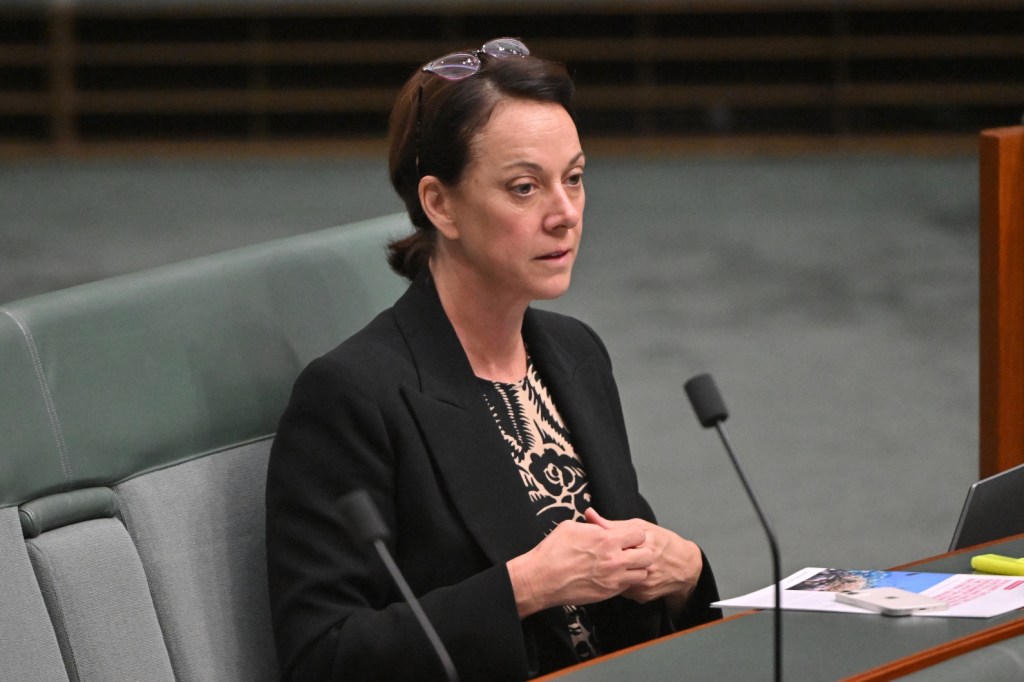
A former general practitioner turned politician has revealed she has been asked to assist visitors who have collapsed in Parliament House — a building that currently has no onsite GP available.
Dr Sophie Scamps was elected to Parliament in 2022 in the teal wave, and since her election, she has been approached by members of parliament and senators seeking prescriptions and management of acute conditions.
She told The Mandarin that an onsite GP, such as the one recommended as an option in the feasibility study handed to the Department of Parliamentary Services, would be in a better position to manage these issues than a serving parliamentarian.
Scamps also said that an onsite GP would be able to assist with a range of tasks that include monitoring chronic illness, repeat prescriptions, and mental health support and also provide scope for parliamentarians and other Parliament House workers to get appropriate screening for preventable illness.
She is the latest of several serving and former parliamentarians to have spoken up about the merit of having an onsite doctor.
Other parliamentarians who have spoken in favour of establishing an onsite GP clinic include Senator Jane Hume from the Coalition, independent Senator David Pocock, and MP Dr Mike Freelander.
Hume is a member of the parliamentary leadership taskforce that was set up to ensure the parliament implemented recommendations from the Jenkins report to improve the culture and safety of parliamentary workplaces.
She has pursued the Department of Parliamentary Services for more than a year during Senate estimates, seeking further action on an option in a feasibility study that would see an onsite GP available for 4,000-5,000 people working in the building on any given sitting week.
Scamps’ remarks on how an onsite GP could work come at a time when the Albanese government unveiled a budget that provided funding for broken and ageing technology but nothing for an expanded health and wellness service.
There is $73.8 million spread over four years, including $48.4 million of capital funding to support operations of parliamentary departments.
This spend includes the replacement and upgrade of safety equipment across the parliament, updating ageing broadcasting systems, and funds to enhance information technology.
The absence of any funding for an onsite GP also follows a previous attempt by Parliamentary Services to seek budget funding for an onsite GP.
Scamps said there is a range of conditions that present themselves in a high-pressure workplace like Parliament House that an onsite GP could assist.
“Like the general population — many MPs have chronic medical conditions that need regular review. Often our lives are so busy it is not possible to make time for the self-care we need,” Scamps said.
“Many appointments to an onsite GP may simply be for repeat prescriptions and disease monitoring — but this is crucial.
“Stress is also significant in a parliamentarian’s role, so having a health professional with expertise in this area such as a GP to provide confidential support and advice would be extremely appropriate and valuable.”
Scamps said that people have sought her out for medical advice, but it is not right for her to do so if she is unable to conduct a proper medical assessment.
“As a former GP, I have been called up several times by other MPs and senators requesting scripts because they have an acute illness that needs review and medicating. It is not appropriate for me to provide that care if I can’t examine them sufficiently or record medical notes,” Scamps said.
“I’ve also been called to respond to visitors collapsing inside Parliament House.”
An onsite GP would be able to deal with a range of routine tasks such as ensuring people have prescription needs filled and monitoring both chronic and acute conditions, Scamps said, but there is also the question of preventative health measures that need to be considered.
“Disease prevention and screening is also critical. Again, I know that due to the extremely busy nature of the role both in the electorate and during sitting weeks — it is very difficult for parliamentarians to keep up with screening recommendations for preventable diseases,” Scamps said.
One of the options entertained by the feasibility study that was completed in November 2022 but only provided to the Senate more than a year later is the creation of private spaces so that people can have conversations with GPs by phone.
Independent MP Zali Steggall is also a member of the parliamentary leadership taskforce, and recently told The Mandarin she favours the greater consideration of telehealth services.
Scamps said that telehealth is suitable for consultation when a GP know the patient and their condition well but “it is not possible to examine a patient online, which can lead to misdiagnosis”.
READ MORE:
Husar wants Parliamentary Services to put a doctor in the House

